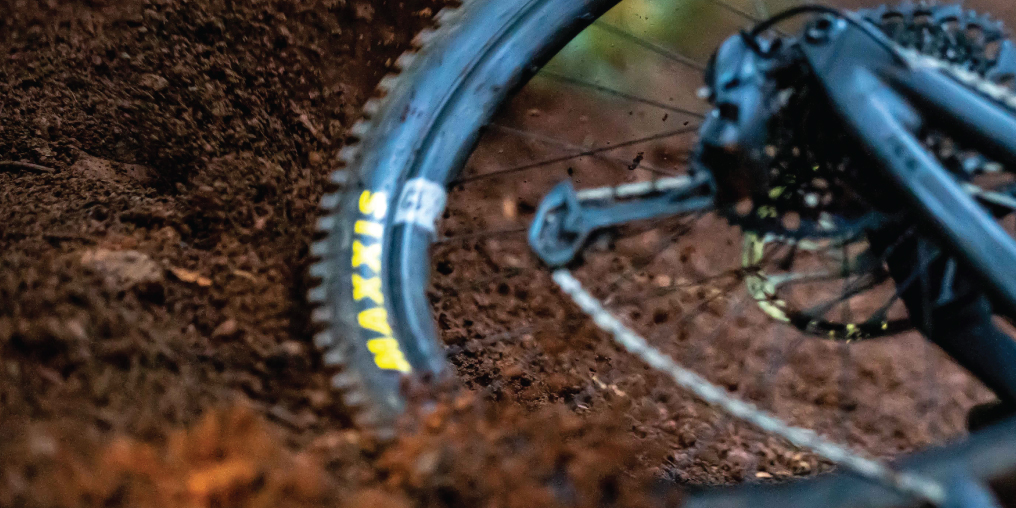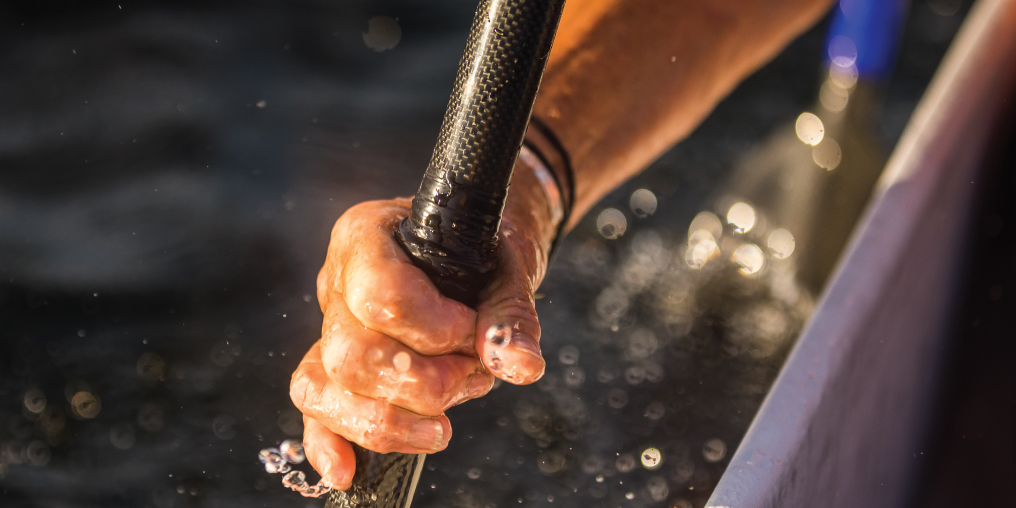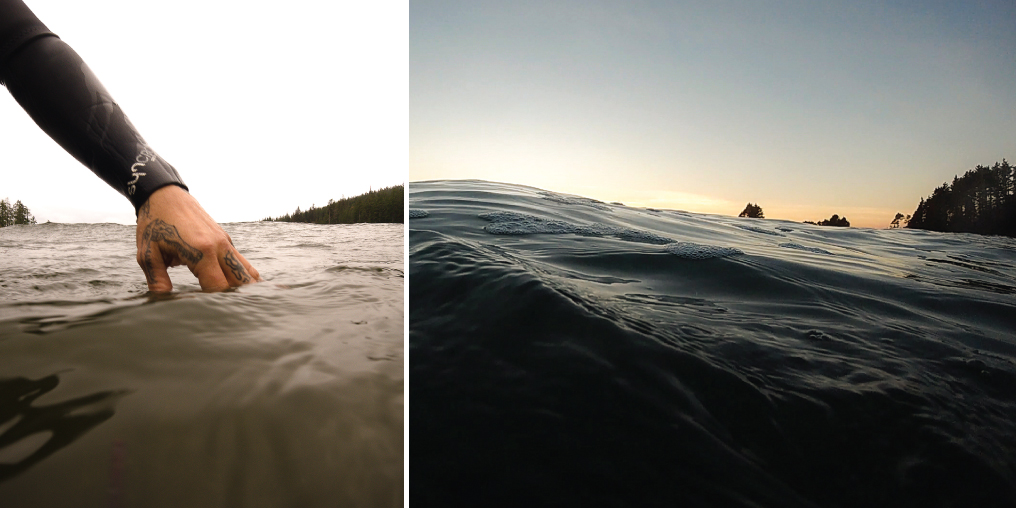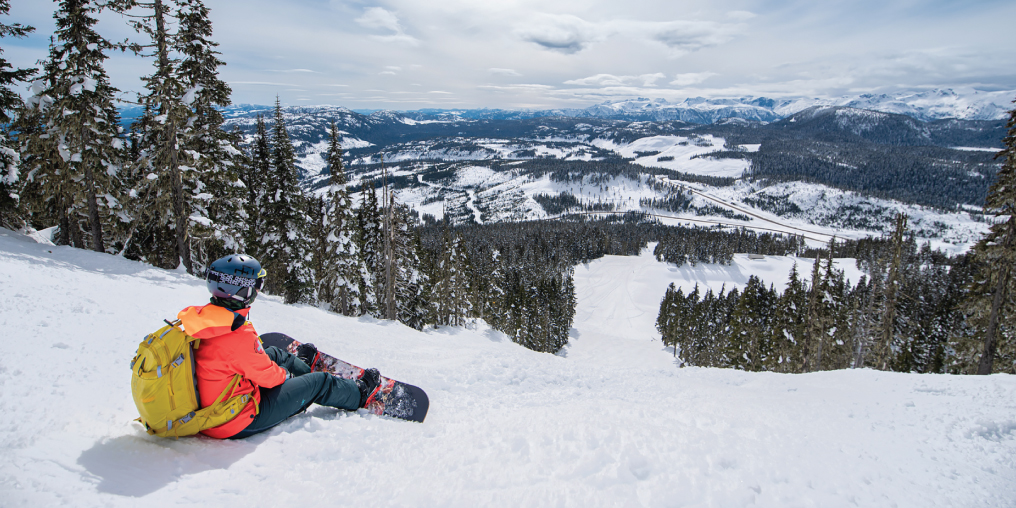The year was 1990. On the steep, raw edge of a Mount Washington ski slope, summer wildflowers stood in stark contrast to the bright tape of a BC Cup downhill mountain bike race. As a bike-manic teenager, I never missed a mountain bike race that my dad would drive me to.
I was here—clinging to the steepest section of the course—to watch the senior men race, of course, but mostly to see a rare sight: a full-suspension, downhill-specific mountain bike. In 1990, few people owned suspension forks, let alone full suspension. No one I knew—no one from the Valley—owned a bike dialled in specifically for DH.
After hours of waiting, I saw the beast in action: a custom purple anodized GT RT ridden by a Victoria-based racer, who wore a full-face helmet, another rarity at the time. I was in awe; glory-days memories were being formulated right before my teenage eyes.
The Mount Washington Bike Park was relatively new. I was 24 hours away from winning a dual slalom event where I squeaked into the top spot when a clearly better rider crashed after styling on the last jump. It would be the first and only bike race victory of my life.
Unlike me, Dan Espeseth—now the owner of Dodge City Cycles in Cumberland, and still a force of nature on the trails—was a multi-disciplinarian who could take home a win in any category in local and BC Cup races. Espeseth recalls watching in disbelief as a future legend arrived on the scene: “Just out of high school … [I] did a big trip to Rossland,” he recalls. “Some guys had full suspension, and Geoff Kabush was riding for KHS. He came down that mountain and launched 40, 50 feet and clipped out in the air, landed one footed, and cursed his way across the finish line. Beat everybody, but almost got disqualified because he was swearing. I was like ‘Holy cow. This guy’s super-fit and can ride. There go my wins.’”
The Valley-raised Kabush would go on to become an Olympian cross-country mountain bike racer, but at that time, he was a guy in my homeroom at Vanier. And he, like many others, raced everything in sight, discipline-wise: one year he took the Junior Canadian title for both XC and DH easily.
This was just the early days of DH on the Island. The successes and failures of Kabush and others over the years, including Leon May, Mike Jones, Darcy Turenne, Jordie Lunn, Rémy Gauvin, and Mark Wallace; helped cut the trail for today’s racers. These days, Vancouver Island riders are notching success on mountain bike circuits (whether cross-country, enduro, or downhill) nationally and internationally.
There’s been no shortage of racers over the years, but there was only one Stevie Smith. He exploded onto the world stage when he won his first World Cup downhill in the final race of the 2012 season, but his career had humble beginnings an hour north of the Comox Valley, where he cut his teeth in his first mountain bike races after achieving some success in BMX.
Espeseth remembers an encounter with a young Smith: “At a Port Alice Island Cup, he really wanted to beat me because it was the last race … and maybe I was cocky. He could have won, but he kept crashing. I told him, ‘You can’t go so fast…you gotta learn how to not crash, and then win.’ Stevie got picked up [by the Devinci factory team] and started racing BC Cups, and we didn’t see him here again.”
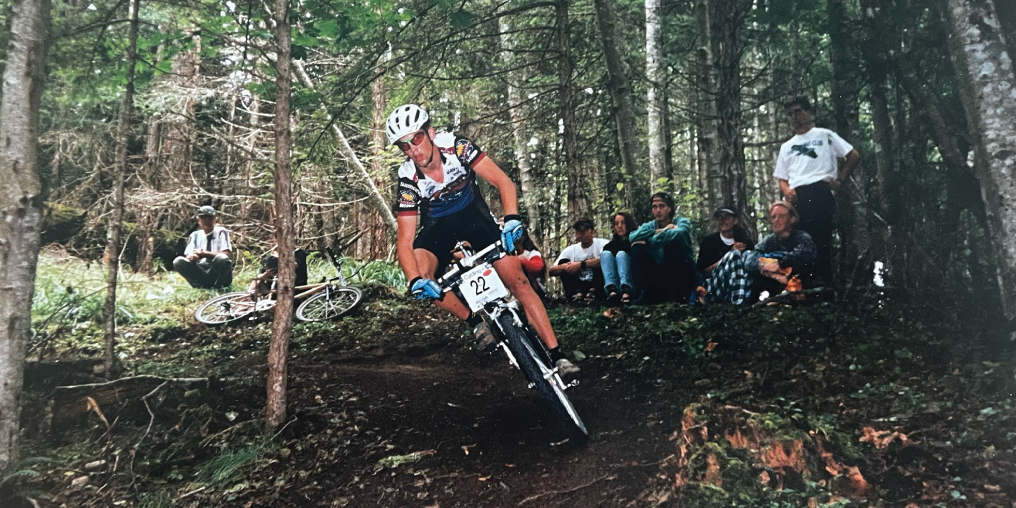
GEOFF KABUSH, PHOTO COURTESY OF GEOFF KABUSH
When Smith took first on that soaked, muddy course in Hafjell, Norway, a chorus of voices suggested he’d done so due to the notoriously wet conditions of the west coast. Indeed, Vancouver Island’s mountains are known for downpours, but they’re also known for hero dirt and year-round riding, both of which may have given Smith an edge.
Hafjell was the first World Cup downhill victory by a Canuck in over two decades. In 2013, when Smith took the overall UCI World Cup Championship, national fervour erupted throughout Canada’s passionate mountain bike community, and especially on Vancouver Island.
Stevie Smith was inspired by Jordie Lunn, and though both riders have since passed away, their legacies have influenced a new generation of riders, including Patrick Laffey, who has amassed a bunch of top-ten international finishes and appears to be on the fast track to a victory, and Comox’s own Emmy Lan.
Lan is one of the most exciting names in the Vancouver Island mountain bike scene. In 2022, she won the Enduro World Series in the under-21 women’s category despite still being in her teens. The year before that, she topped the national podium in both enduro and downhill. (Enduro is another gravity discipline that requires untimed climbing sections in between stages. Think of it as a fitter person’s downhill race.)
She entered her first World Cup DH race in 2022 and by midseason 2023, she’d worked her way out of mid-pack and was standing on podiums, taking third in the Canadian DH National Champs in Fernie, BC. Like Smith, Lan shines when the conditions are wet and muddy; she’s credited the ability to ride all year round as an advantage for Valley riders.
A recent Instagram post by Forbidden Bike Company underlines the magic of the Valley as a training ground: “It’s more than just the water that contributes to [young riders’] skill. It’s the vast, rugged, and topographically diverse terrain, the dedicated team of trail builders and advocates, a mild climate that provides nearly year-round rideable conditions, and a connected community that supports athletes.”
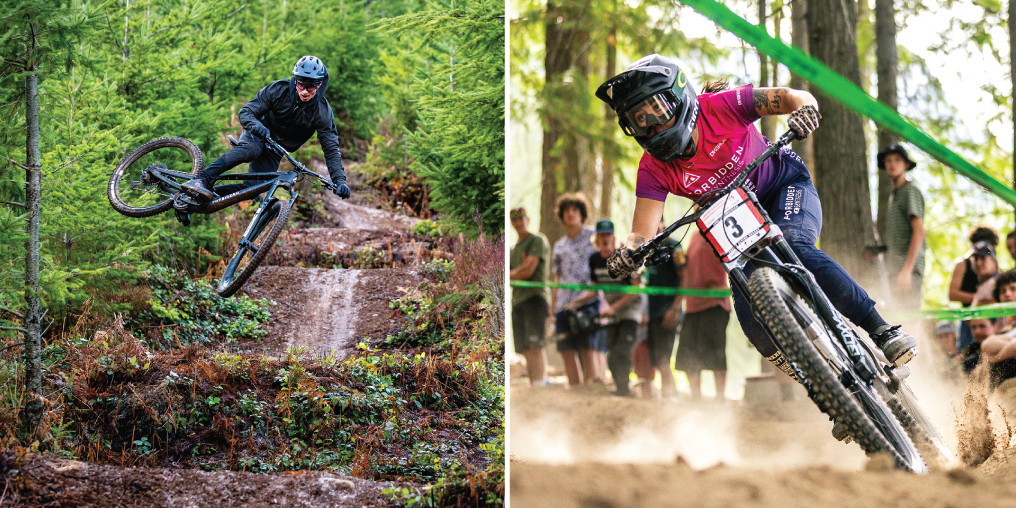
LEFT: ZACHARY REBITT, PHOTO BY LIAM WALLACE. RIGHT: EMMY LAN, PHOTO BY SARA KEMPNER
One of Forbidden’s newest team riders is Zachary Rebitt, who primarily races enduro. “Zach lives on Forbidden Road, and races all over the world. He’s a 17-year-old shredder,” says Cumberland’s Chris Hancock, who wrenches bikes as the downhill national team mechanic and coaches for Gravity MTB. “You can just keep naming people these days … all the junior World Cup downhill racers from Canada have been moving right near here.”
Local rider and coach Chad Hendren explains what advantages the kids of today have over those who came before: “The year-round trail network is already established and it’s so good,” he says. “The kids can get home from school and go riding. No driving needed. Some of the things I’ve witnessed 8- to 10-year-olds do in the last two and half years are incredible.”
Back at Mount Washington on a late August weekend in 2023, Forbidden Bike Company is the title sponsor at the Stevie Smith Memorial BC Cup Downhill. Comox’s Eva Leikermoser wins her pro class on the Monster Mile track; Laffey takes second in the men’s pro. Most of BC’s best downhill racers are in attendance, and Van Isle makes a strong showing, of course. Island freeride legend Darren Berrecloth announces he’s personally crafting a new downhill flow trail in the bike park (“After almost 20 years of us talking it’s finally happening,” he notes). Stevie’s mother, Tianna Smith, holds court at the base, where she is swarmed by Gravity MTB students seeking autographs.
It appears the future of downhill—like the past—is as bright and anodized as the eras that came before.

